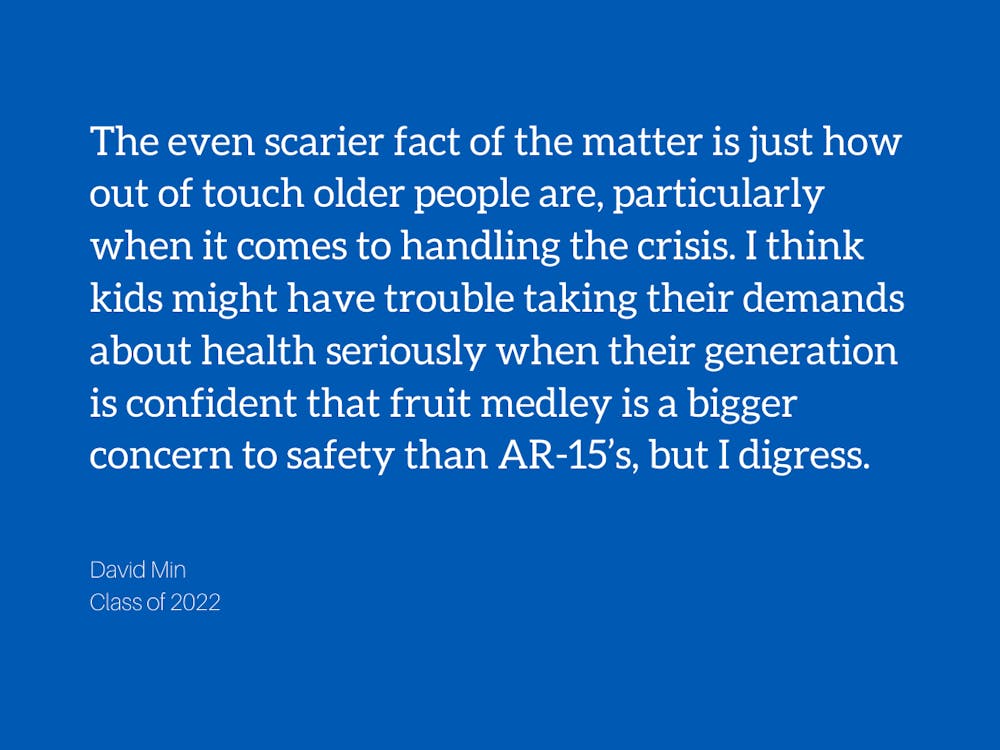I often find myself daydreaming about how future generations will look back upon our current society. I think about this not only in the context of technological innovation and the age of Trump, but also in terms of more minute fixtures like Twitter culture, late 2000’s iOS games, and mumble rap. It’s likely that historians will botch or even just entirely forget these smaller yet essential details about our time. But something that I can only hope they write about is Juuling.
In my columns, I usually find myself prescribing action or trying to make some sort of deep, thought-provoking point and then struggle with the idea that I might be entirely unqualified to add nuance to these topics. But this is way different: in my short stint as a college sophomore, I feel absolutely comfortable and potentially overqualified to talk about this.
I felt inspired to write about this topic mostly because of just how annoying the mainstream media coverage of people Juuling is. But I also don’t want to get your hopes up. I won’t tell you it’s funny or even permissible that you can’t make it through a 75-minute lecture without chiefing. In a different sense, I seek to highlight some less-covered observations mostly so that boomers can figure just what exactly is going on. They seem to be the only ones who read my articles anyways.
To me, the issue of Juuls and e-cigs more generally will either end up as a paragraph max in American history textbooks—somewhere in the last chapter that no one really reads because the school year is about to end—or as a fantastic introduction into the lost generation chapter that recounts how half of us perished in the pursuit of crackly noises from a USB device.
My friends’ Juul habits don’t really terrify me, but I am definitely worried about the younger generations. Think about the visceral, gut-wrenching terror of being caught by some mid-level school administrator for taking a smoke break in the bathroom during 3rd period or the fact that instead of debating favorite Call of Duty maps, they’re arguing about the pros and cons of 3% mint versus 5% Virginia tobacco.
The latter is a truly insidious but relatively new debacle brought about by the Great Flavor Fallout of 2019. Top-level government action by the FDA axed some of Juul’s most popular flavors, but only seemed to prove that the whole appeal of Juuling wasn’t that adolescents stupidly liked cute and yummy, fruity flavors but actually just about how sick the morning head rush is.
In fact, the flavor ban has only seemed to push kids away from more refined and cultivated tastes in cucumber and creme brulee towards having to ask the Shell Gas Station guy for the “Banana Ice” Puffbar. He hands it over and glares disapprovingly; you’re just as embarrassed because you’re still thinking about asking him to swap it for “Blue Razz” which apparently restocked. Truly uncivilized.
I think an essential first step in thinking about Juuling is identifying which particular populations we’re talking about. Some key figures:
- The really addicted kid. They’ll brag to you about their nicotine-induced bowel movements and how they’ve lost their battery for the 5th time this semester. You’re never sure what to say.
- The really addicted kid who thinks not owning one but asking strangers for hits every 4 hours is what progress looks like.
- The “I only do it when I’m out” type. You’re not fooling anyone. You’re out every night.
- The “I don’t inhale it though” type. No free clout, you’re the worst.
One of the largest, yet overlooked benefits of Juuling has to be its ability to test character and produce personal improvement. The Juul forces you to learn to trust total strangers who ask for it out of fear of being wack, engage in critical thinking to determine how much of your friend’s decision to stop by your room can be traced back to nicotine withdrawals, and practice forgiveness when your loved ones delete your pod but can only cough up a reasonable, yet unsatisfactory Venmo offer that you politely decline.
When you choose not to participate in such a system, know that you are saying no to the networks of those living in the fringes of society who have united against leaky pods and networks of loosely affiliated college students who have all unsurprisingly contracted the same cold.
To be honest, it’s actually pretty scary. And I think there’s probably something to say about capitalism if I think hard enough. The even scarier fact of the matter is just how out of touch older people are, particularly when it comes to handling the crisis. I think kids might have trouble taking their demands about health seriously when their generation is confident that fruit medley is a bigger concern to safety than AR-15’s, but I digress.
Either way, you’re not going to convince these kids that they should stop because it’s dangerous. Hit them where it hurts, go straight for their Achilles heel. Tell them they’re not cool and that cigarettes are way cooler. Tell them that they’re getting used by their friends but are too afraid to stop. Tell them it’s embarrassing that they structure their days around ripping it. That no one cares what they carved onto it or that they call it Juulio Jones. And most importantly, tell them that the fact they’re perpetually quitting says a lot more about them than the Juul itself.
David Min is a Trinity sophomore. His column, milk before cereal, runs on alternate Mondays.
Get The Chronicle straight to your inbox
Signup for our weekly newsletter. Cancel at any time.

